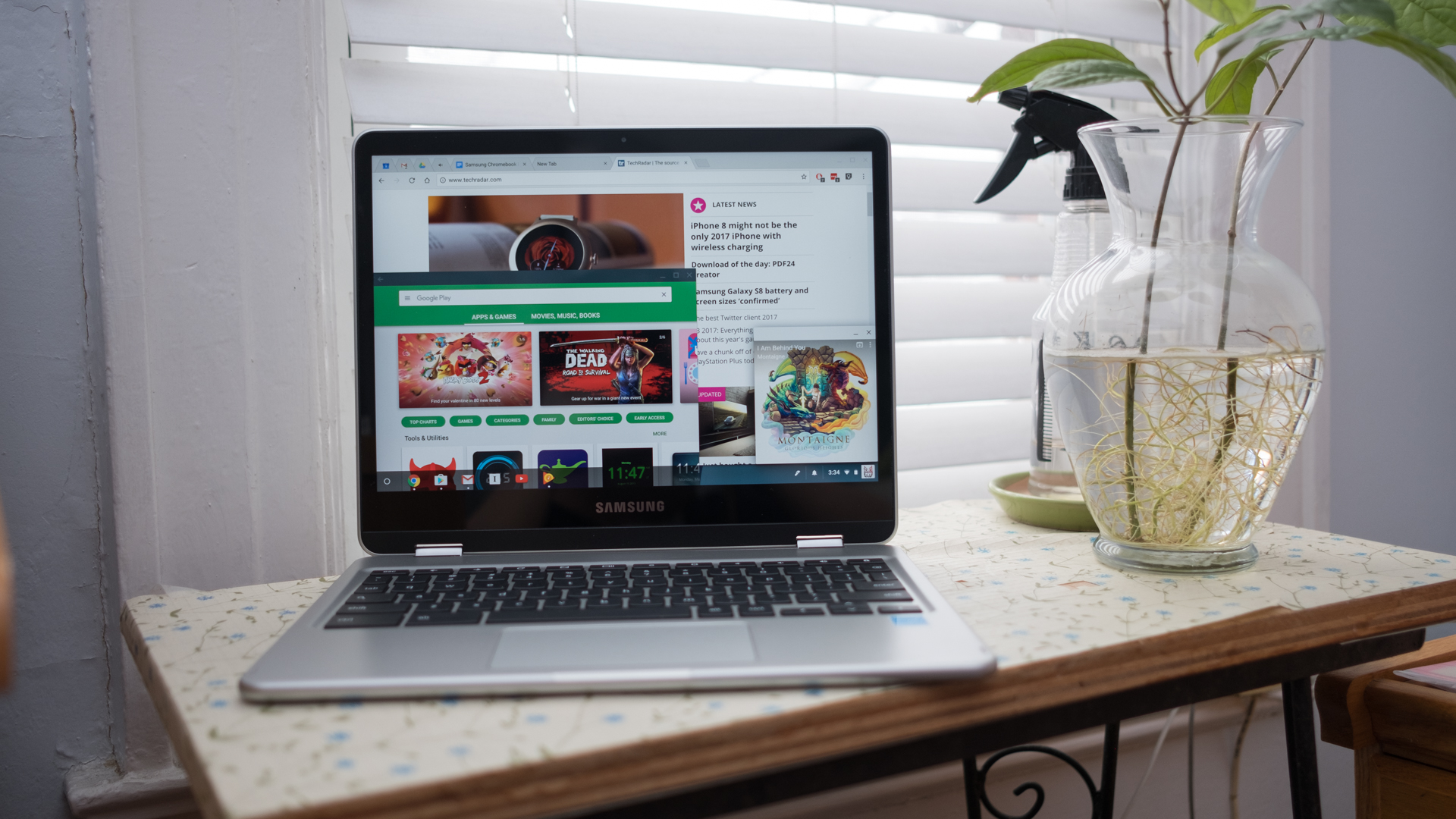Why you can trust TechRadar
Here’s how the Asus Chromebook Flip C302 performed in our suite of benchmark tests:
Mozilla Kraken: 1818ms
Octane: 21,911
JetStream: 125
Battery Life (TechRadar movie test): 8 hours, 43 minutes
The Samsung Chromebook Pro is capable of a lot, including streaming 4K media, thanks to its Intel Core m3-6Y30 processor and 4GB of onboard memory. That would normally be overkill for most Chromebooks, but Samsung’s latest Chrome OS machine puts all that power to good use for driving a QHD screen and running more demanding Android apps.
We had no problems tabbing through dozens of websites at a time, periodically popping open Android apps and playing Google Music all at once.
Although the Samsung Chromebook Pro comes outfitted with the same Intel Core m3 processor as the Asus Chromebook Flip C302, it lagged behind in our benchmarks. For example, it took nearly 600 more milliseconds to complete Mozilla’s web-based Kraken test. This could possibly be due to the Chromebook Pro’s sharper screen putting more pressure on processing power.
Otherwise, the HP Chromebook 13 is still one of the fastest Chrome OS machines we’ve ever reviewed, thanks to its Intel Core m5 CPU – though it comes at a higher cost.
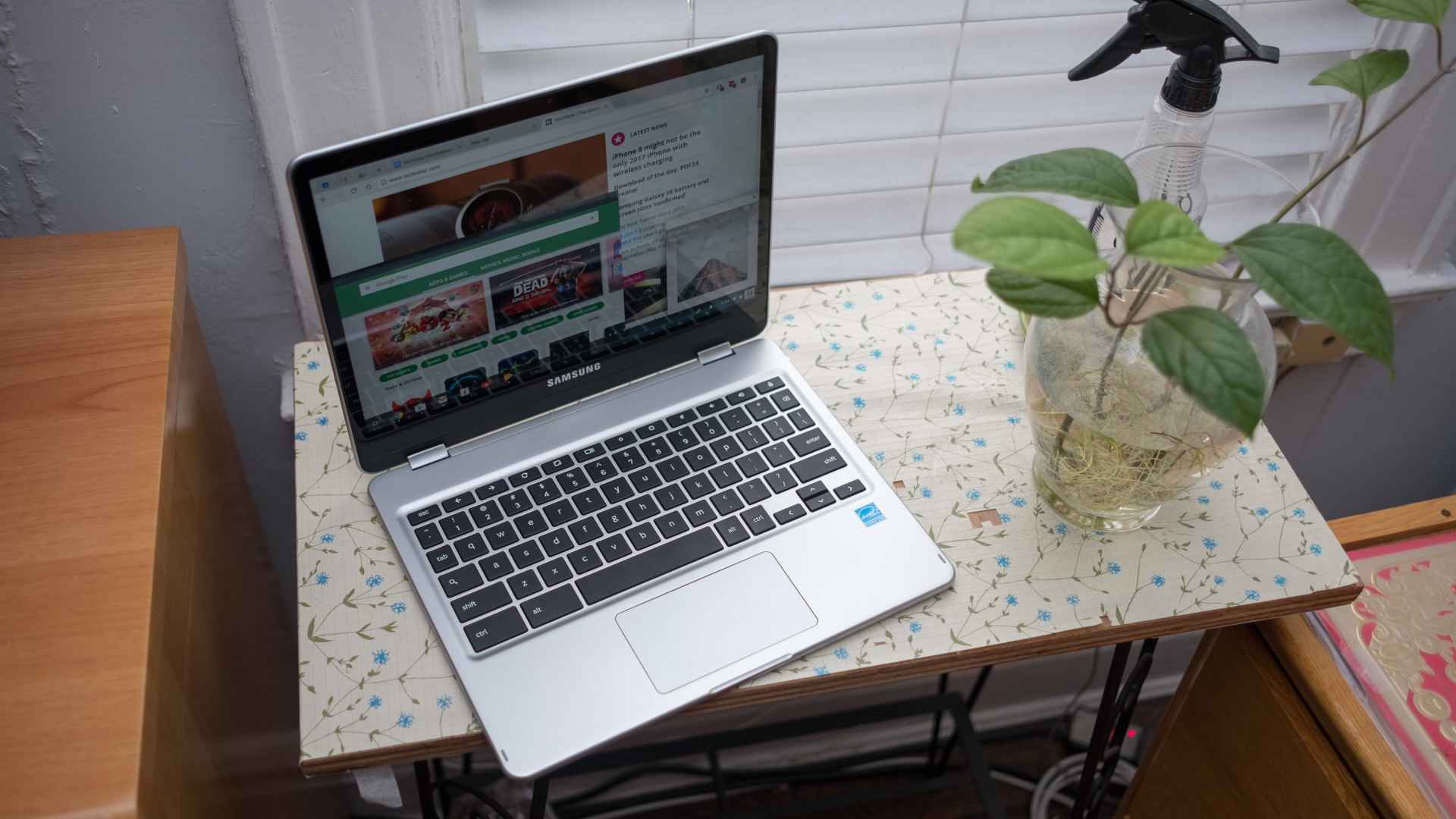
Battery life
The higher-resolution screen, of course, also makes an impact on battery life. Sure, running our standard battery test for nearly nine hours straight and putting in seven and a half hours of work will be fine for most – but there are longer lasting Chromebooks out there.
The Asus Chromebook Flip C302 ran for two hours longer playing the same movie test, while giving us 30 minutes more of regular usage than the Samsung hybrid. Still, things could be worse: the HP Chromebook 13 managed to stay on for just eight hours on our standard battery test, thanks to its ludicrous, 3,200 x 1,800-resolution display.
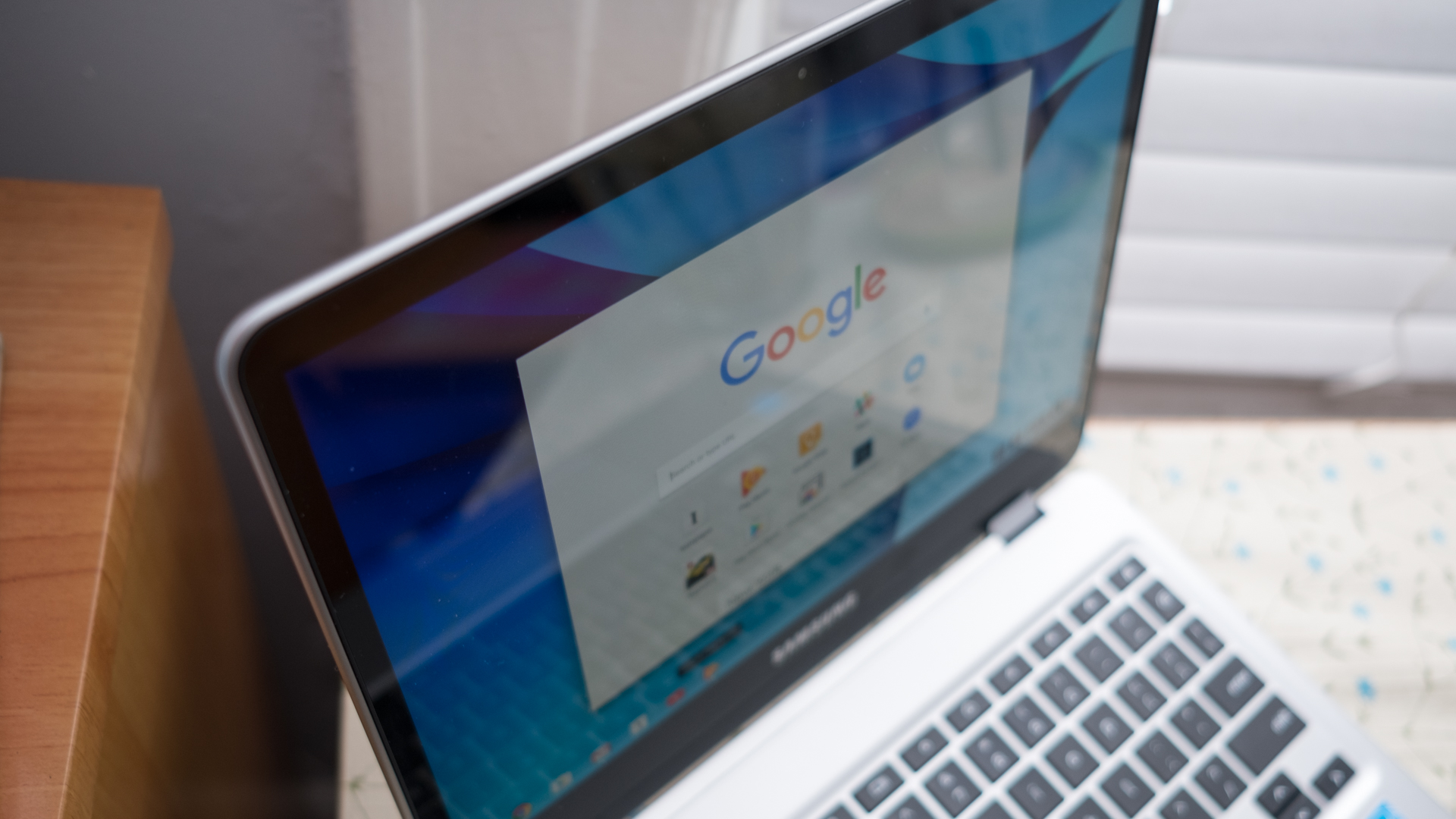
Popping display
No matter what type of media you consume on this Chromebook, it’ll all look amazing on this screen. Samsung has stuck to its tradition of including gorgeous displays on its devices, and here we have a 12.3-inch, QHD (2,400 x 1,600) resolution display.
Sign up for breaking news, reviews, opinion, top tech deals, and more.
The Samsung Chromebook Pro has the best display we’ve seen on a Chromebook yet.
On top of sharpness, the display renders colors with vivid richness without being overly saturated. Contrast here is also better represented than we’ve seen on the Asus Chromebook Flip C302 and other Chrome OS devices, but we still see black levels fall off at the darkest end of the scale.
The Samsung Chromebook Pro doesn’t have the world’s loudest speakers, and they can sound hollow at higher volumes, too. They’re serviceable enough for jamming to as you surf the web and for watching the odd movie, but headphones are a must if you want a pleasurable listening experience.
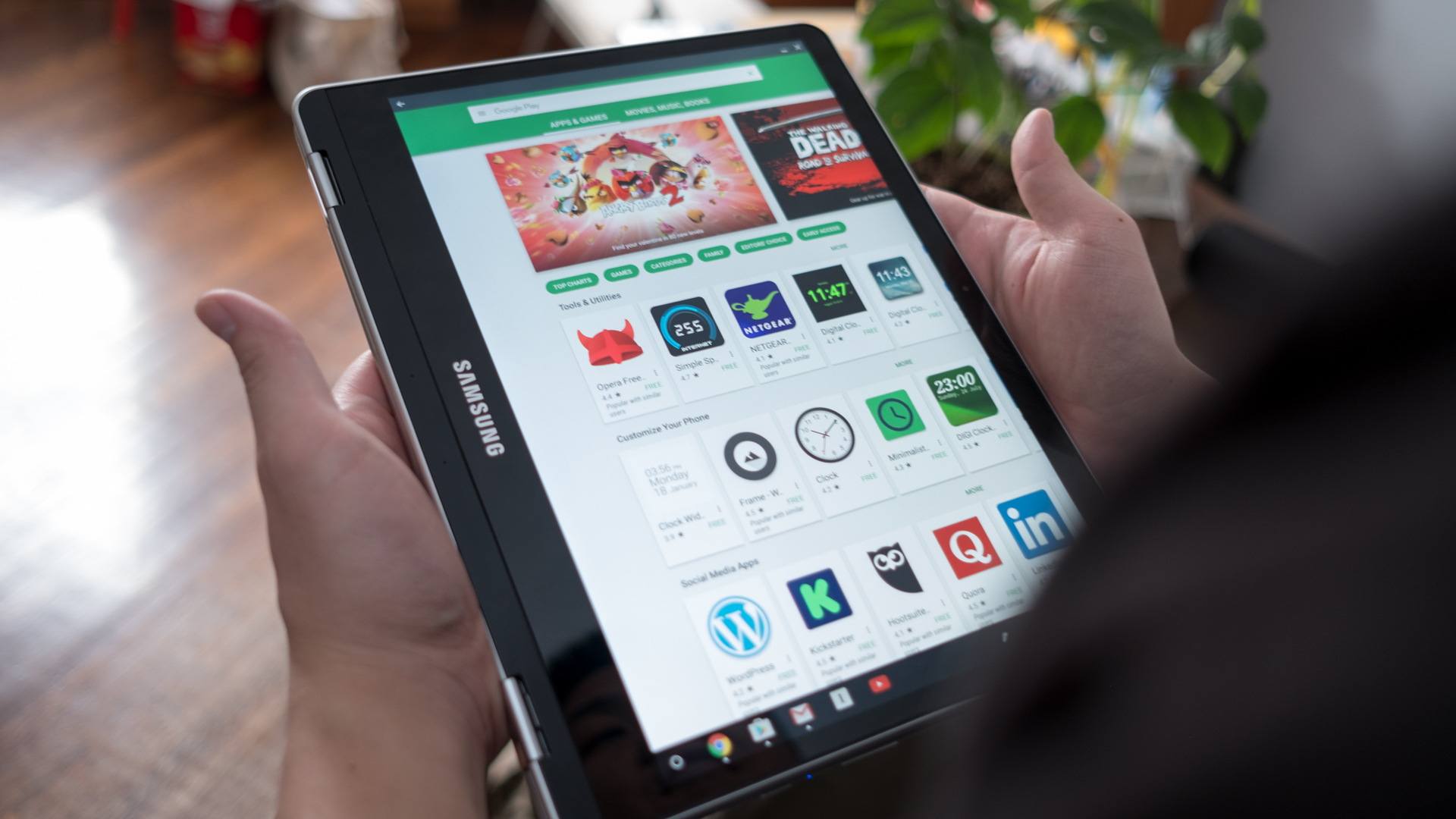
Better as a tablet
Fold back the display and the Samsung Chromebook Pro feels as natural as using any Android tablet. The 3:2 screen gives it the familiar shape of a slate that’s great for reading content from articles saved to our Instapaper and e-comics we bought on the Kindle store to regular web browsing on Chrome.
With Android apps at our fingertips, we also used Netflix and YouTube to download offline videos for our long commute.
Chromebooks were once useless without an Internet connection, but now, thanks with the ability to sync offline drive files, save media through apps and download games, we don’t have to rely on a connection all the time.
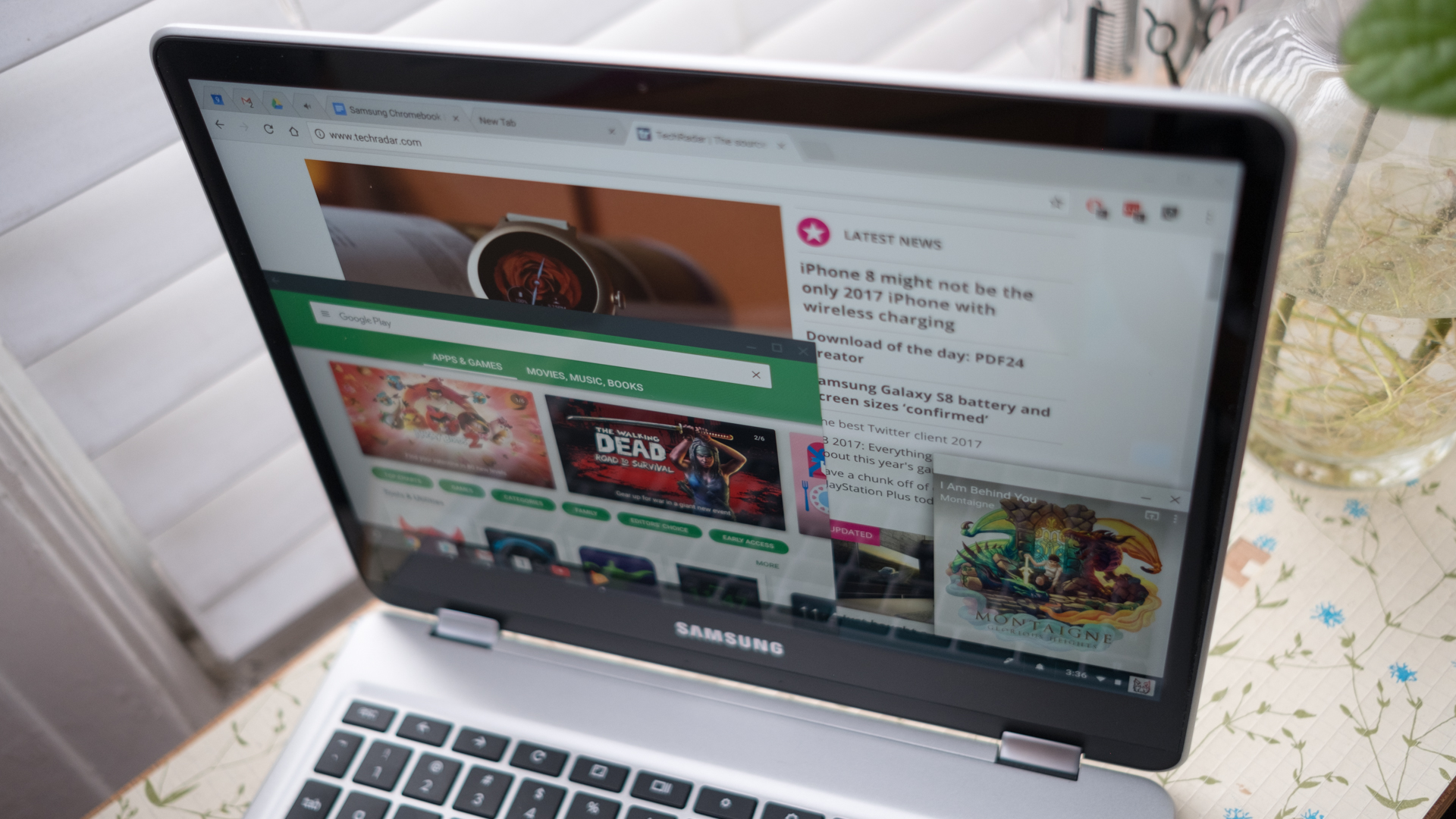
That said, storage capacity on Chromebooks hasn’t increased with the times. The usual 16 to 32GB isn’t going to cut it for much longer, and until manufacturers wise up, we’ll have to rely on adding microSD cards assuming the slot is available.
Like the Asus Chromebook Flip, our pre-production review sample of the Pro came running with a beta version of Chrome OS, granting us access to the Play Store. However, Google tells us the retail Samsung Chromebook Pro will arrive this April with a stable release of software and full access to the Play Store.
Whether it’s running on beta software or not, Android apps run almost perfectly on this Chromebook. There’s still the occasional hitch, such as the Kindle app not displaying books in full-screen while in portrait mode, and many apps like Slack not scaling text properly. We can only hope this will improve in the future.
We liked
Samsung has hit a home run with the first stylus-supported Chromebook. Right out of the gate, the pen feels as natural as writing on paper, a feat that took three generations of Surface devices for Microsoft to master.
Aside from the unique built-in pen, this is one the lightest, well-built Chromebooks yet, with a high-res screen designed for consuming web media. Combined with a wonderful tablet mode, we’ll just skip Android tablets entirely and just get this Chrome OS machine.
We disliked
The Samsung Chromebook Pro doesn’t perfectly ride the line between being an Android tablet and and Chromebook. In its focus to offer a great tablet experience, it’s an imperfect laptop with an annoyingly small keyboard and shorter battery life than we’ve become accustomed to on Chrome OS.
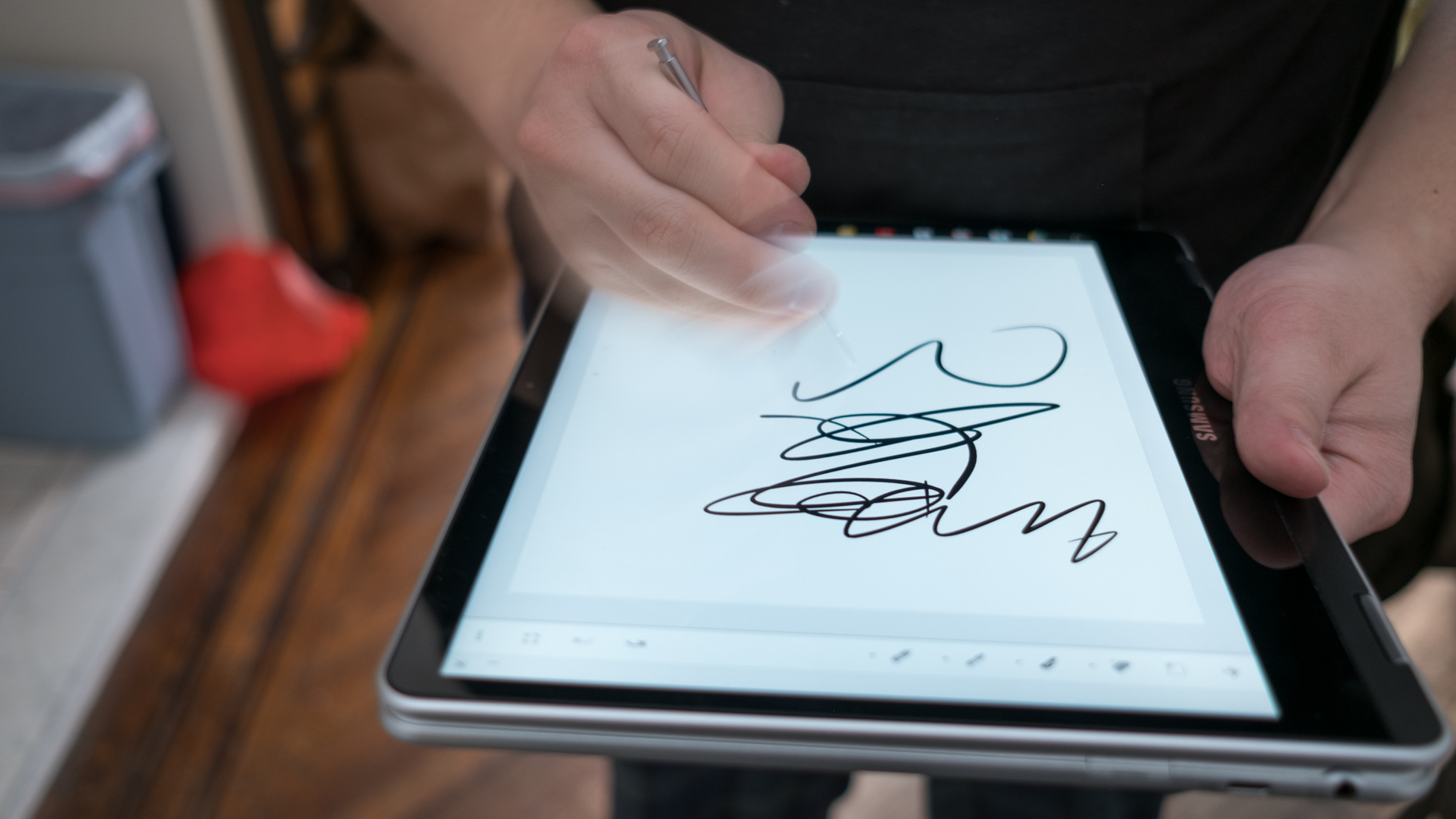
Final verdict
Aside from the $549 (about £440, AU$720) premium you’ll pay for this Chrome OS hybrid, the biggest deciding factor of whether you’ll buy this device is what type of Chromebook are you looking for.
If you’re looking for a Chromebook designed for the Android-fused future Google is pushing, the Samsung Chromebook Pro is what you seek. The Asus Chromebook Flip C302 hews closer to the traditional Chromebook format, with a great keyboard and longer battery life, while still being able to flip into a tablet.
Alternatively, if you seek an simple, affordable Chromebook of yore, then your options expand greatly with any budget option from Acer, HP and the usual suspects.
This editor in particular sees the Samsung Chromebook Pro as the device he's been waiting for. It’s the perfect Chrome OS device for being used as an Android tablet for 70 to 90% of the time and flipping back into a traditional laptop for writing emails and the odd article. If your use case is the same, your wait for a competent Android-tablet-Chromebook-hybrid is finally over.

Kevin Lee was a former computing reporter at TechRadar. Kevin is now the SEO Updates Editor at IGN based in New York. He handles all of the best of tech buying guides while also dipping his hand in the entertainment and games evergreen content. Kevin has over eight years of experience in the tech and games publications with previous bylines at Polygon, PC World, and more. Outside of work, Kevin is major movie buff of cult and bad films. He also regularly plays flight & space sim and racing games. IRL he's a fan of archery, axe throwing, and board games.
